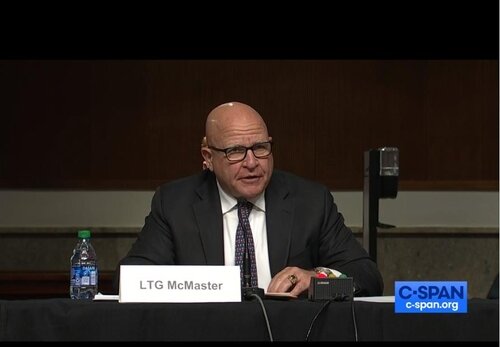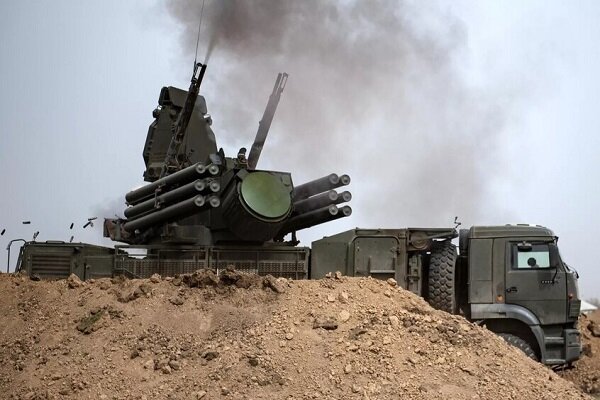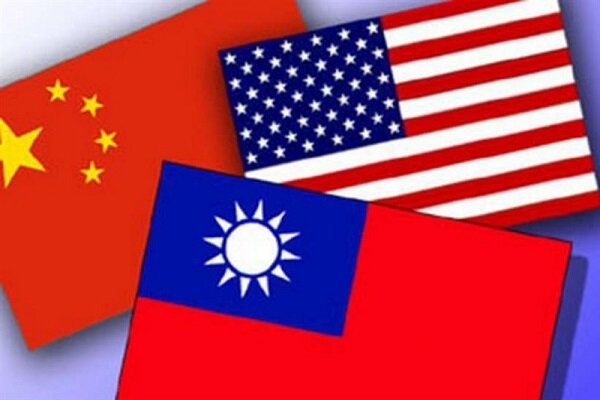Former US national security adviser: China has stolen a significant amount of “data” by hacking Trump’s phone
China has hacked the US president-elect’s phone and stolen a “stunning” amount of data, a former top aide to Donald Trump has claimed, and is working to gain the capability to launch a nuclear first strike against the United States.
According to RCO News Agency, “Herbert McMaster”, who served as the national security advisor of “Donald Trump”, the current president-elect of the United States from 2017 to 2018, threatened “the United States “It should impose very significant costs on China for engaging in massive cyber intrusions.”
“They tapped Donald Trump’s phone and everyone around him for 6 months,” McMaster said in a speech at the Council on Foreign Relations meeting. is it true “They have stolen significant amounts of data that we found on our own telecommunications networks.”
“I believe this is what China is doing,” he added. “You may think I’m crazy for saying this, but I think it paves the way for the ability to launch a nuclear first strike against the United States.”
The ability to carry out a nuclear first strike refers to the ability of a country to carry out a so-called preventive nuclear attack with the hope of destroying or destroying the enemy’s nuclear arsenal in order to limit its ability to retaliate.
These claims are made by McMaster 2 weeks before Donald Trump returns to the White House. Recently, the United States has expressed concern over the fact that China is expanding its nuclear arsenal, as well as the implementation of cyber attacks by this country.
It was unclear whether McMaster’s comments about phone hacking stemmed from reports in October that alleged hackers linked to the Chinese government had targeted Donald Trump’s communications during the 2024 US presidential campaign. It is also unclear whether this claim by McMaster is related to previous claims about wiretapping of Trump’s calls by Chinese and Russian spies during the first term of his presidency.
China has rejected the claims made by the United States about Beijing’s cyber intrusions against it and described it as “malicious speculation” and said that Washington has “started to spread all kinds of false information about the so-called Chinese hacking threats.”
McMaster stated that China is preparing to launch a first nuclear attack against the United States. He said he made that conclusion based on judging “what China is doing from a cyber point of view, and that Beijing is really developing a covert capability to disable our telecommunications networks as well as significantly strengthening its strategic forces.” “
He claimed that China has focused its capabilities in the field of surveillance and information gathering “relatively strongly” on Washington’s strategic forces. “I mean, if this is the case, then we have to be serious about it,” he warned.
Meanwhile, China has emphasized that it has no policy regarding the first use of nuclear weapons.
McMaster said, “The United States must further develop its strategy to counter various forms of Chinese aggression, not to allow China to gain exclusive advantages throughout the Indo-Pacific region, and not to allow China to create new spheres of influence at the international level. Allowing the rules of international discourse to be rewritten in favor of its own static economic model, not to find its own autocratic governance model.
The United States needs a combination of “proactive defense” for its critical infrastructure and “offensive capability” in multiple areas, including cyberspace, economics and finance, McMaster continued.
He added: “If China is going to play this game, we will have to impose very significant costs and make the very significant problems they have recently had in the area of economic growth, widespread youth unemployment, housing crisis, debt crisis and other crises worse. Let’s do it.”
He said that such an action will probably cause a reaction, and the United States should practice different types of retaliation such as diplomatic, economic and military and comprehensively use the tools available to it, including trade tariffs, export controls and monitoring investments. .
end of message
News>RCO NEWS
RCO













